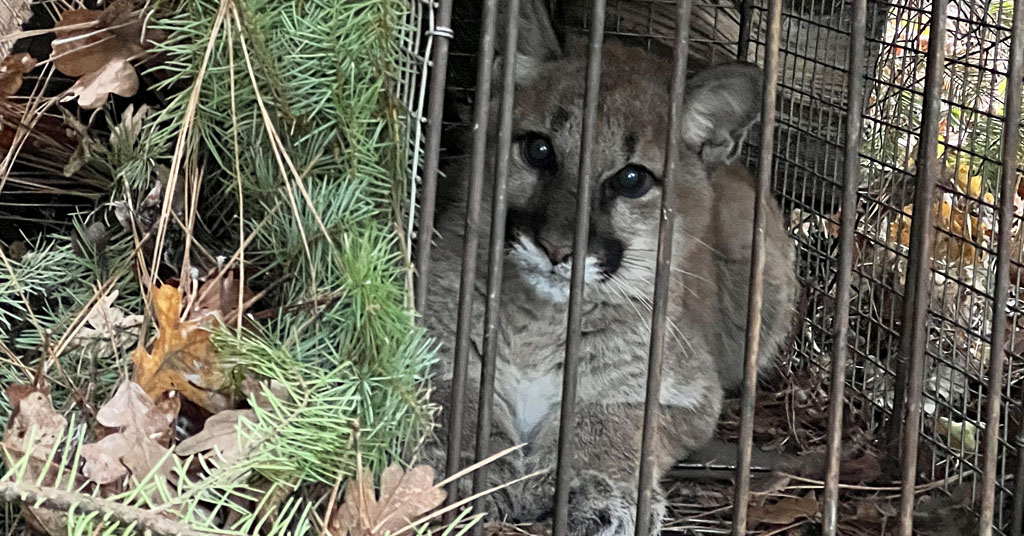Cumberland Abandons Plan to Trap ‘Nuisance’ Beavers Because State Law Requires They Be Killed, Not Relocated
June 8, 2022
CUMBERLAND, R.I. — A town plan to trap “nuisance” beavers to reduce the flooding they cause has been halted after a town official learned the captured animals would be killed.
Mayor Jeff Mutter said the town stopped trapping beavers after a news article on the plan was published May 19, and he became aware the beavers would be killed and not relocated.
“We suspended the activity the very next day,” Mutter said. He explained that at the time of approving the action, he didn’t realize state law required trapped beavers be killed unless they were released back into the same area.
“I should have been aware,” he said. When the article was published, two individuals reached out to him about the lethal action, and the trapping was immediately paused, he said.
Mutter said the town will explore other techniques before resorting to killing the beavers again.
“We want to coexist,” he said. “We want to do everything that we could do to not go to those measures. And then to go to those measures if we were left with no other option.”
Mutter said beavers have caused issues on private property and on town-owned land for a while. Rhode Island’s beaver population has steadily grown since the 1970s, and the increase in animals in urbanized areas has caused flooding for years.
To legally trap and kill beavers outside of the Nov. 1 to Feb. 28 hunting season, Cumberland had to apply for a nuisance permit through the state.
The Rhode Island Department of Environmental Management often gives out off-season permits to transportation companies and the Department of Transportation when beavers are clogging culverts or damming waterways and causing roadway flooding and creating a safety hazard, according to David Kalb, DEM supervising wildlife biologist.
“Human safety is our No. 1 concern” when issuing these types of permits, Kalb said, and in the case of Cumberland, he said the flooding impacts individual property and water wells in addition to roadways.
Though relocating the beavers might seem like the best solution, Kalb said it can be “costly” and “dangerous,” calling it a “poor practice.” Beavers who are placed in new habitats could bring diseases to previously healthy groups of animals or cause conflict by encroaching on their new neighbors’ space. And their attempts to return to their original home can cause problems when they try to cross roadways, he said.
“Beavers, probably greater than almost any other species in North America, have the ability to make dramatic changes to large, broad areas,” Kalb said. “Nobody wants to see a beaver flood out 500 homes that are upstream of it.”
“We have to look at each case, and say, ‘What’s the greater good here?’” he added.
Still, killing the animals is a last resort, and DEM usually encourages other courses of action to prevent damming before trapping.
Parts of the town are already using non-lethal methods to deal with the beavers’ engineering. The Cumberland Land Trust does not allow trapping on its property and instead has installed fences around culverts and other measures, which have decreased some of the flooding and allowed humans to coexist with the beavers, the trust’s secretary Joe Pailthorpe said.
However, sometimes those practices aren’t enough, Kalb said. “‘Busy as a beaver’ is a thing for a very good reason,” he said. “The work that it takes several human beings to destroy overnight or over the course of a day, beavers can fix that back and make more progress on it overnight.”
On average DEM approves about 20 of the nuisance trapping applications annually and on the high end, about five beavers are killed per permit, Kalb estimated.
It is not clear how many beavers were captured in Cumberland while the town was still allowing the practice. Cumberland will have 30 days after its license expires to report its kills, according to Kalb.




There is proven existing technologies to reduce flooding caused by beaver dams. It’s called the “beaver deceiver” and is used by many municipalities and state wildlife departments. I hope Cumberland (and our DEM) checks this out : https://beaverdeceivers.com/